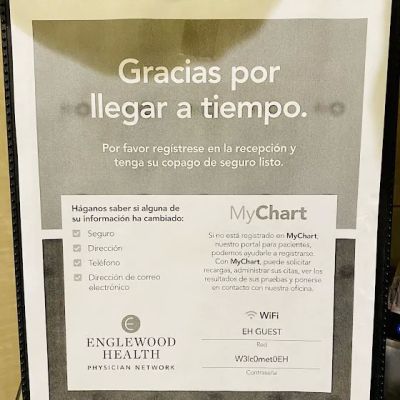- What is Homocysteine?
- The Link Between Homocysteine and Cardiovascular Disease
- How to Manage Homocysteine Levels
- Why Monitoring Homocysteine is Important for Heart Health
- Why Choose HeartCare Hub for Your Heart Health Needs
What is Homocysteine?
Homocysteine is an amino acid that is naturally present in your blood. It is produced when your body breaks down a substance called methionine, which is found in many high-protein foods. While some homocysteine is normal, elevated levels of this amino acid can have serious health implications, particularly when it comes to heart health. High homocysteine levels have been associated with an increased risk of cardiovascular diseases, including heart attacks, stroke, and blood clots.

The Link Between Homocysteine and Cardiovascular Disease
For years, researchers have studied the relationship between homocysteine levels and cardiovascular health. Elevated homocysteine is thought to damage the lining of blood vessels, making them more susceptible to the buildup of plaque (atherosclerosis), which can eventually lead to heart disease. Here’s a closer look at how high homocysteine can impact your cardiovascular system:
1. Damage to Blood Vessel Walls: High levels of homocysteine can irritate and damage the walls of arteries, making it easier for fatty deposits and plaque to accumulate. This increases the risk of developing atherosclerosis, a condition where the arteries harden and narrow, restricting blood flow to the heart and other vital organs.
2. Blood Clot Formation: Homocysteine is also thought to promote the formation of blood clots by interfering with the body’s normal clotting processes. These clots can block blood vessels, increasing the risk of heart attacks and strokes.
3. Increased Inflammation: High homocysteine levels are linked to higher levels of inflammation in the body, which can contribute to the development of cardiovascular disease. Chronic inflammation can damage blood vessels and increase the risk of various heart conditions.
Northside Hospital Cardiovascular Institute - Sandy Springs, Barfield
northside cardiovascular institute
6135 Barfield Rd Suite 100, Sandy Springs, GA 30328, USA

How to Manage Homocysteine Levels
Fortunately, there are several ways to manage and reduce elevated homocysteine levels, often through dietary changes and lifestyle modifications. Here are some effective strategies:
1. Vitamin B12, Folate, and Vitamin B6: One of the most effective ways to lower homocysteine levels is by ensuring you’re getting enough vitamins B12, B6, and folate. These nutrients play a crucial role in breaking down homocysteine in the body. Foods rich in these vitamins include leafy greens, beans, peas, whole grains, and animal products like eggs and dairy. In some cases, supplements may be recommended by a healthcare provider.
2. Eat a Heart-Healthy Diet: A balanced diet that supports overall cardiovascular health is essential in managing homocysteine levels. This includes eating plenty of fruits, vegetables, whole grains, and healthy fats, while limiting saturated fats, processed foods, and excessive salt. Omega-3 fatty acids, found in fatty fish like salmon, have anti-inflammatory properties and may help reduce cardiovascular risk.
3. Regular Physical Activity: Exercise plays an important role in maintaining healthy homocysteine levels. Regular physical activity can improve blood flow, reduce inflammation, and support heart health overall. Aim for at least 30 minutes of moderate exercise most days of the week to improve your cardiovascular health.
4. Avoid Smoking and Limit Alcohol: Smoking and excessive alcohol consumption can raise homocysteine levels and contribute to cardiovascular disease. Quitting smoking and limiting alcohol intake can significantly improve your overall heart health.
Why Monitoring Homocysteine is Important for Heart Health
Monitoring your homocysteine levels is important because high levels can often go unnoticed until significant cardiovascular damage has already occurred. Regular blood tests can help detect elevated homocysteine and allow for timely interventions. Here’s why it’s crucial to monitor your homocysteine levels:
1. Early Detection of Risk: Elevated homocysteine levels can be an early indicator of cardiovascular risk, even before other symptoms or conditions appear. By catching it early, you can take proactive steps to lower your levels and reduce your risk of heart disease.
2. Personalized Health Plans: Monitoring homocysteine levels allows healthcare providers to create personalized treatment and prevention plans tailored to your unique health needs. This might include dietary recommendations, supplements, and lifestyle modifications to help optimize your cardiovascular health.
3. Ongoing Monitoring for Those at Risk: Individuals with a family history of heart disease, those with other risk factors (such as high blood pressure or high cholesterol), or those already diagnosed with cardiovascular conditions should monitor homocysteine levels regularly. This allows for adjustments to treatment plans as needed to manage risk factors and improve overall heart health.
Why Choose HeartCare Hub for Your Heart Health Needs
At HeartCare Hub, we understand the importance of maintaining optimal cardiovascular health. We offer expert advice, personalized treatment plans, and resources to help you manage homocysteine levels and reduce your cardiovascular risk. Whether you're looking to monitor your heart health or learn more about lifestyle changes that support your heart, HeartCare Hub is here to guide you every step of the way.
Visit us at HeartCare Hub to learn more about how to manage your heart health and take proactive steps to lower your homocysteine levels.






















CardioVascular Group Lawrenceville
cardiovascular group
2200 Medical Center Blvd ste 400, Lawrenceville, GA 30046, USA